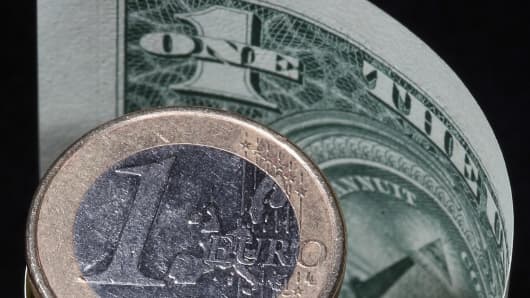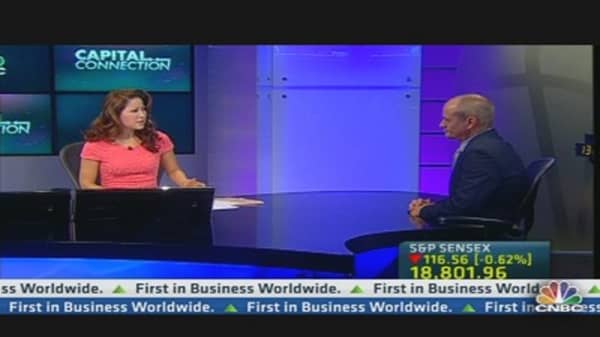The euro remained near a 2 1/2-month low on Monday on rising expectations that euro zone economic worries could prompt the European Central Bank to cut interest rates sooner than previously anticipated.
Although a Reuters poll last week showed economists expected the ECB to keep rates on hold this Thursday, some strategists said euro weakness would persist on growing expectations bank chief Mario Draghi would hint at future cuts.
Poor euro zone sentiment and unemployment data since last week could compel the ECB to revise down its outlook for the currency bloc's economy and consider earlier rate cuts, they said.
Data on Monday showed euro zone sentiment tumbled in March on renewed political uncertainty in Italy, the euro zone's third largest economy.
Italy appeared to be inching toward another round of elections after an inconclusive one last week. Analysts are concerned that without a stable government, the country will be unable to pass reforms required to get its borrowing and debt under control.
Italian 10-year bond yields as a result rose to 4.881 percent on Monday, underperforming all euro zone bonds apart from Greece's.
(Read More: Italy Election Punches Hole in ECB's Defenses)
"The euro continues to be firmly out of favor, as has been the case since the outcome of the Italian parliamentary election last month," said Samarjit Shankar, director of market strategy at BNY Mellon in Boston.
"That rekindled yet another bout of investor concerns due to the political uncertainty in the country in particular and the commitment of euro zone policymakers to austerity in general."
Renewed worries about Italy, the euro zone's third-largest economy, rattled investors, sending sentiment in the currency bloc down sharply in March and fueling speculation the ECB will lower interest rates in the near term.
Although a Reuters poll last week showed economists expected the ECB to keep rates on hold this Thursday, some strategists expect the bank to revise down its inflation projection and look for a 25-basis-point rate cut as early as the April meeting.




